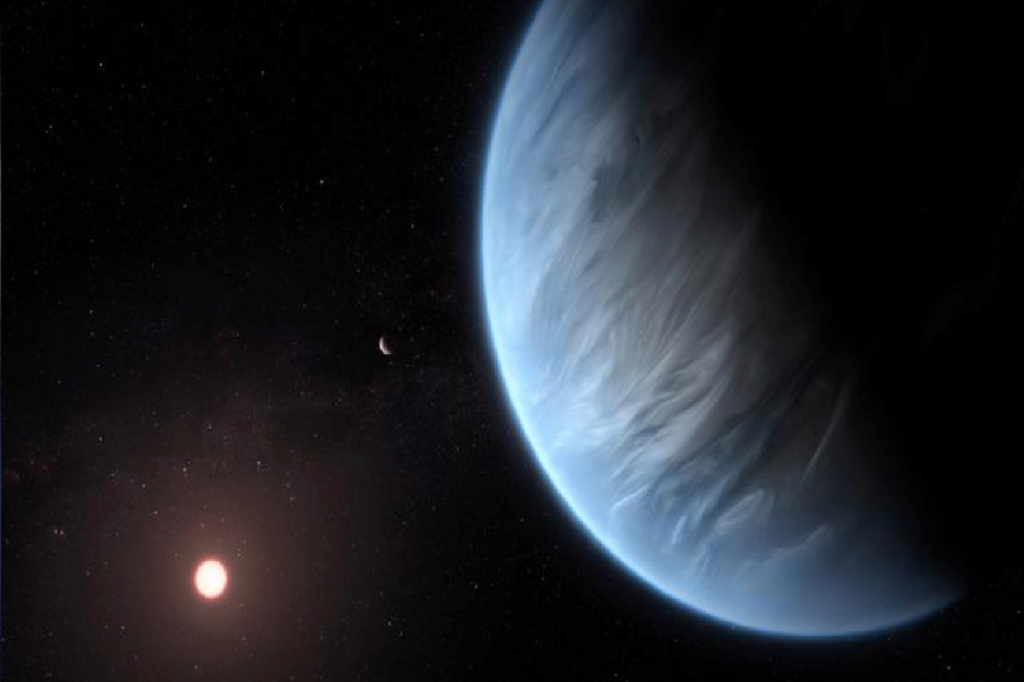The discovery of a new solar system suitable for incubating alien life forms
The discovery of a new solar system suitable for incubating alien life forms (Reuters)
Astronomers have discovered a new planetary system consisting of two alien worlds that may be home to alien life forms.
The two planets orbit around a small, cool star called LP 890-9. The star is ranked second in terms of its ultra-coolness in the group of stars that have been found to host planets, preceded in the first place by "TRAPPIST-1" (an ultra-cool dwarf star with seven planets), which is also interesting.
One planet, known as LP 890-9b, is only 30 percent larger than Earth . It is so close to the cold star that a year [the time it takes a planet or asteroid to complete a full orbit around its star] takes only 2.7 days.
The newly discovered system also has another completely unknown planet, which has been dubbed LP 890-9c. The planet is about the same size as its first counterpart - 40 percent larger than Earth - but its year of rotation is longer, taking 8.5 days to make its way around the star.
In their new research, the scientists used ground-based telescopes called Speculoos ("Search for habitable planets EClipsing ULtra-cOOl Stars") for their new research. Ultra-cool stars such as LP890-9b require this type of follow-up observations, as space telescopes can find them difficult to spot.
Scientists have embarked on new observations in the hope of confirming the existence of the first planet, which was first spotted as a possible world by NASA's Transiting Exoplanet Survey Satellite, which searches for planets outside our solar system. Observations also found the second planet.
The second planet lies within the star's "habitable zone," which means it's not too hot or cold for alien life.
Turning to the discovery, the professor of extrasolar planet science at the University of Birmingham, leader of the "Spiculus" working group, which determined the observations that resulted in finding the second planet within the system Amaury Triod, said that the concept of "habitable zone" refers to a planet that contains Similar geological and atmospheric conditions to those on Earth, its surface temperature allows water to remain liquid for billions of years.
"This gives us permission to carry out further observations in order to find out whether the planet has an atmosphere and, if this is the case, to study its content and assess its suitability for living" alien life forms, Professor Triod added.
The Independent
https://www.independentarabia.com/node/370331/%D8%B9%D9%84%D9%88%D9%85/%D9%81%D8%B6%D8%A7%D8%A1/%D8%A7%D9%83%D8%AA%D8%B4%D8%A7%D9%81-%D9%86%D8%B8%D8%A7%D9%85-%D8%B4%D9%85%D8%B3%D9%8A-%D8%AC%D8%AF%D9%8A%D8%AF-%D9%8A%D8%B5%D9%84%D8%AD-%D9%84%D8%A7%D8%AD%D8%AA%D8%B6%D8%A7%D9%86-%D8%A3%D8%B4%D9%83%D8%A7%D9%84-%D8%AD%D9%8A%D8%A7%D8%A9-%D9%81%D8%B6%D8%A7%D8%A6%D9%8A%D8%A9?utm_medium=Social&utm_source=Facebook&fbclid=IwAR0dlIf6wp2P4ZPHJI4fPmh-U8mt2VGpHVZOji678wb4Q3GZalaUDPojM0g#Echobox=1662894752-1


